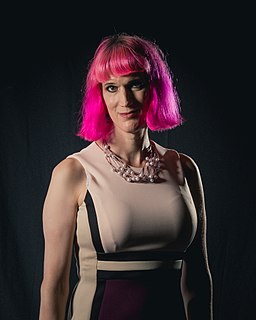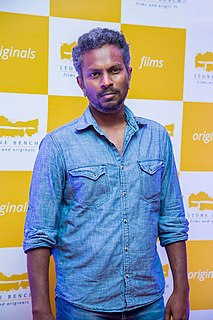A Quote by Alan Menken
Part of the job is knowing how to use this medium in the most effective way for the story you're telling, so for me, to pick a genre I want to do is a little harder. I would say it's more about thinking, 'What genre will work for what kind of story?' And then, when all of that comes, I embrace it and run with it.
Related Quotes
The beauty of the horror genre is that you can smuggle in these harder stories, and the genre comes with certain demands, but mostly you need to find the catharsis in whatever story you're telling. What may be seen as a deterrent for audiences in one genre suddenly becomes a virtue in another genre.
The thing about games is, players often say they don't care about story, but then if you took the story out, what would their reaction be? If no one cared about story, we'd all still be playing Pac-Man. There's nothing wrong with Pac-Man, but the point is, there's a genre of games in which you want to become part of that world.
I don't think there's a right or wrong things in your style. It's about how you clearly reflect who you are; how you more clearly tell the story. Who are you? How do you want to transmit that to the world, and how do you more clearly say that? Then I have a philosophy, FFPS: fit, fabric, proportion, and silhouette. Proportion's everything, really, knowing your body and understanding that. Those things have been really crucial for me. It's about being clear about the story you want to tell to the world about who you are - and maybe a little bit of FFPS.
I would like to believe this is a story I’m telling. I need to believe it. I must believe it. Those who can believe that such stories are only stories have a better chance. If it’s a story I’m telling, then I have control over the ending. Then there will be an ending, to the story, and real life will come after it. I can pick up where I left off.
[Michael] Chabon, who is himself a brash and playful and ebullient genre-bender, writes about how our idea of what constitutes literary fiction is a very narrow idea that, world-historically, evolved over the last sixty or seventy years or so - that until the rise of that kind of third-person-limited, middle-aged-white-guy-experiencing-enlightenment story as in some way the epitome of literary fiction - before that all kinds of crazy things that we would now define as belonging to genre were part of the literary canon.
I do love science fiction, but it's not really a genre unto itself; it always seems to merge with another genre. With the few movies I've done, I've ended up playing with genre in some way or another, so any genre that's made to mix with others is like candy to me. It allows you to use big, mythic situations to talk about ordinary things.
I am very excited to work with people who have a strong vision of what they want. They're trying to tell a story, and they want to use me. I'm there to facilitate that. I really like that. I'm like, "Tell me where your frame is. Tell me what you want, what kind of story you want, and I will facilitate it." That's sort of my job, and it makes my work better when I'm working in that kind of a frame, and hopefully it's their work. It's incredibly collaborative, in the sense that you're working toward a common goal.
How to make a scary movie human, take a movie like Sinister. How can I make that guy so real so that the scary elements of it are more scary and it functions as a genre movie - as the way it's supposed to, you want to hear a ghost story at midnight, that's a good one - but how do you fill it up with humanity inside, in staying true to the genre? You know? Does that make sense?
The lovely thing about writing comics for so many years is that comics is a medium that is mistaken for a genre. It's not that there are not genres within comics, but because comics tend to be regarded as a genre in itself, content becomes secondary; as long as I was doing a comic, people would pick it up.
When I get about five readers I can rub together in one genre, I leave that genre and go somewhere else. And this is due to a vow that I made myself when I started writing - that if I had any success at all, I would not be bound to one form of writing. That I would write what moves me. The only way I can see me surviving and doing more than one book is to present the readers with a Dan Simmons novel, with whatever tropes and protocols from whatever genre I want to borrow them. If that builds a Dan Simmons readership, well then, okay. Otherwise, forget about it. I'd rather drive a truck.




































